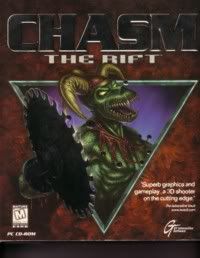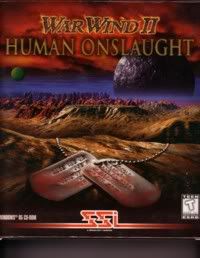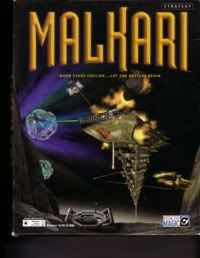Games, crime, and CSI
When a group of criminals play out a violent videogame in real-life, the CSIs must stop them before they strike again.
That's the story in a nutshell. Sure, the basic CSI stuff goes on, with some of the interpersonal development that they awkwardly stick into some of the episodes, but it pretty much revolves around the idea of kids playing a video game and copying it in real life.
Yes, I know the idea has been (and still is) fought over ad nauseum, that violent video games encourage violent behavior in children. And yes, I know there are people unbalanced enough out there who would try to act out game scenes for the thrill of it. I've probably known some of them. But I'm not going to rehash the old arguments.
The bone I want to pick is:
Wait for it...
That horrid, ugly, black-hole-level-of-suck game they showed. Yup, that's right, that embarrasing, back-woods-cousin representative of computer games that they threw up on the screen. (For those of you who haven't seen it, follow the link above and watch the preview. Look for the two or three seconds they show of the 'game' in question.)
Do the people who plan this show know anything about PC games? Couldn't somebody have stood up at some point and said 'That game doesn't look interesting, marketable, fun, or even playable'? I mean, crap, guys, I know you can't program a whole game engine just for one show, and licensing an existing one would cost quite a bit, but couldn't you have your art people at least research game design a little before they cobble something together? Or even ask a gamer for some input?
Here are some brief points for next time:
1. Quality PC games do not use screen fonts that look like refugees from Wargames.
2. Quality PC games do not flash the score in the middle of the screen every time you earn points - they keep it off to the side where it won't distract from the gameplay.
3. Quality PC games do not change camera angles every couple of seconds like a bad episode of MTV's Real Life, nor do the cameras constantly 'swoop' around the character.
You want to see some great examples of how to do it? Look at some screen shots of Max Payne, Battlefield 2, GTA3/Vice City, or XIII. Better yet, you can probably find two or three of those titles on discount racks for around $10 or less. Try playing them, then look back at the travesty you put on the screen Monday night. See if you can tell the difference in the basic 'feel'. What CSI had was a cartoon. A badly drawn, overly-violent cartoon. Not a game.
If this is the only exposure some people have to PC games, it's no wonder they think the hobby is a vast waste of time. If you want to make social commentary and provoke discussion, fine, but at least pretend like you've done some research on the subject matter.








